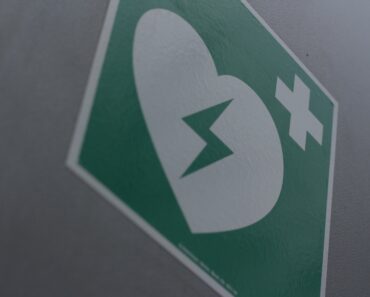Blood pressure is the force the blood exerts on the inner walls and arteries. Every person has constant blood pressure. However, it can fluctuate throughout the day. It decreases when you relax and increases when you are excited or under stress.
Fetss wants to share how to measure blood pressure and what it means when it is high or low.
How blood pressure measured
The blood pressure is measured in millimeters (mm Hg), shown in two figures.
Systolic pressure refers to when your heart pumps blood out during contractions.
Diastolic pressure refers to the time when your heart stops beating between beats. The heart fills up with blood during rest to push it into your arteries during the next contraction.
If someone claims their blood pressure is 120/80 or 120/80 mmHg, their systolic and diastolic pressures are 120/120 mm Hg and 80 mmHg, respectively.
What does blood pressure mean?
American Heart Association has identified five types of blood pressure.
- Normal blood pressure: A blood pressure of less than 120/80mm Hg is normal. This blood pressure is normal. It’s sufficient to eat a healthy diet and exercise frequently.
- Elevated blood pressure (hypertension): The readings of the systolic or diastolic pressure, in this case, range between 120-129mm Hg and less than 80mm Hg, respectively. If people with high blood pressure don’t take control of the condition, they can become hypertensive over time.
- Hypertension stage 1 refers to a condition where the systolic or diastolic pressure readings fluctuate between 130 mm Hg and 139mm Hg, respectively, or 80 mm and 89mm Hg. Doctors may recommend lifestyle changes or blood pressure medication based on the risk of stroke or heart attack at this stage.
- Hypertension stage 2 refers to a condition where the readings fluctuate between 140/90 mmHg and higher. Doctors will likely prescribe blood pressure medication at this stage and recommend lifestyle changes.
- Hypertension crisis: Emergency medical attention is needed at this point. You should wait five minutes before taking your blood pressure again if your blood pressure suddenly rises to 180/120 mmHg. You should consult your doctor immediately if they remain high.
What does high blood pressure mean?
It is considered high if blood pressure is consistently higher than 140/90 mmHg. Some doctors may be able to diagnose high blood pressure if it is elevated continuously and is at least 130/80mm Hg. This limit is based on the most recent clinical guidelines.
High blood pressure can be linked to unhealthy lifestyles, obesity, inactivity, and high blood pressure. If left untreated, high blood pressure can cause damage to the arteries and reduce their flexibility. This can cause a decrease in blood flow and oxygen to the heart. It could eventually lead to coronary artery disease. High blood pressure can also cause serious damage to the brain, kidneys, and eyes.
High blood pressure is often not accompanied by any warning signs. High blood pressure is often not recognized by the patient. Regular blood pressure checks are the best way to determine your condition.
Lifestyle changes can help many hypertensive people lower their blood pressure. You should consult a doctor to get individual recommendations.
Low blood pressure: What does it mean?
Low blood pressure is more common than high blood pressure. This condition can lead to blood pressure readings of 90/60 mmHg or lower. Low blood pressure can be a side effect of some medications. Low blood pressure may also indicate that you suffer from heart failure or dehydration.
Low blood pressure, unlike high blood pressure, may cause the following symptoms:
- Weakness
- Dizziness
- Feeling sick
- Blurred vision
- Confusion
- Fainting
Consult your doctor if you experience any of the symptoms listed above. Your doctor will take your blood pressure and assess your health. They may also ask about your medications. Your doctor may recommend treatment options to relieve your symptoms if they find the source of your low blood pressure.
This information is provided for informational purposes only. Talk to your doctor to know how to measure blood pressure and interpret the results.



